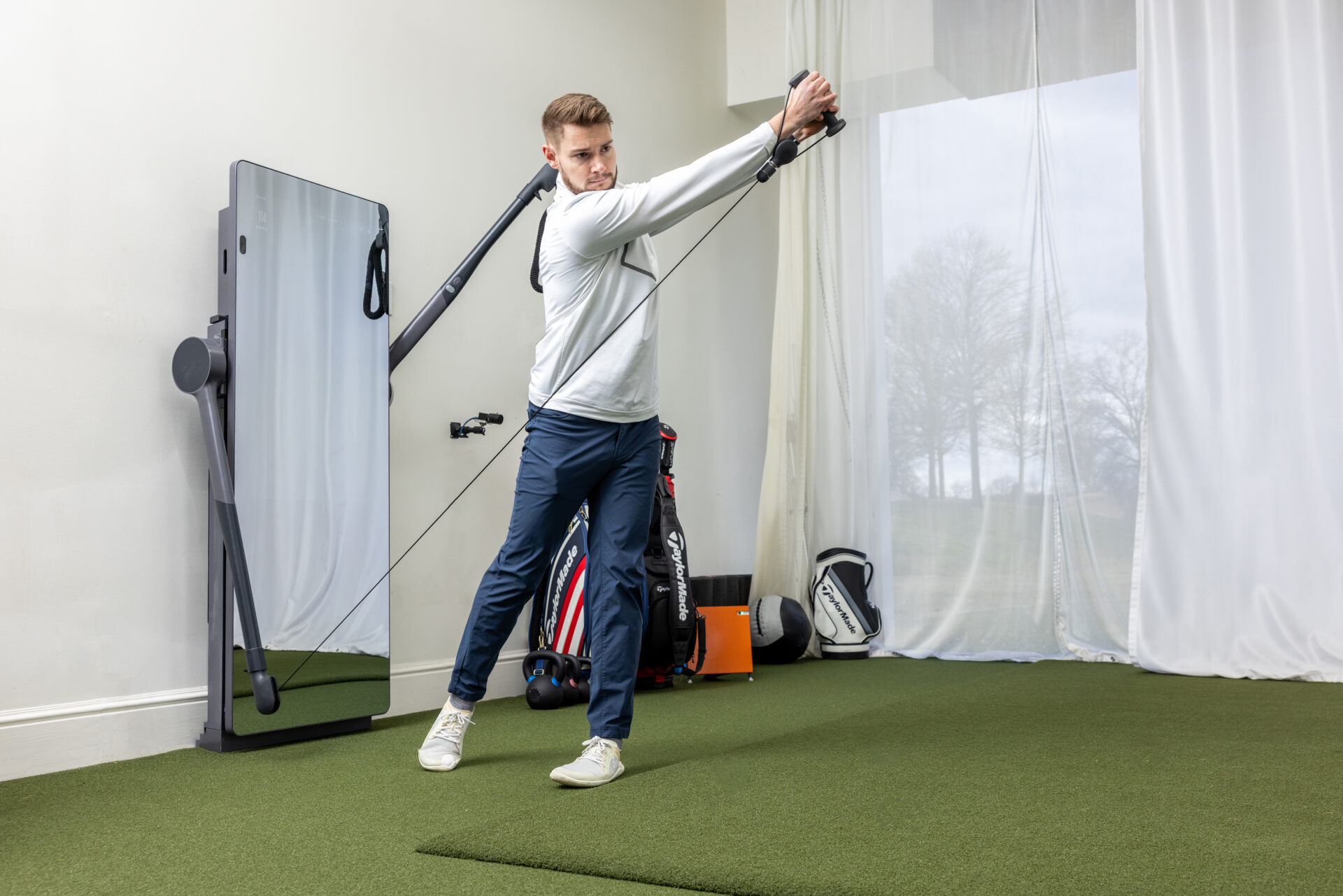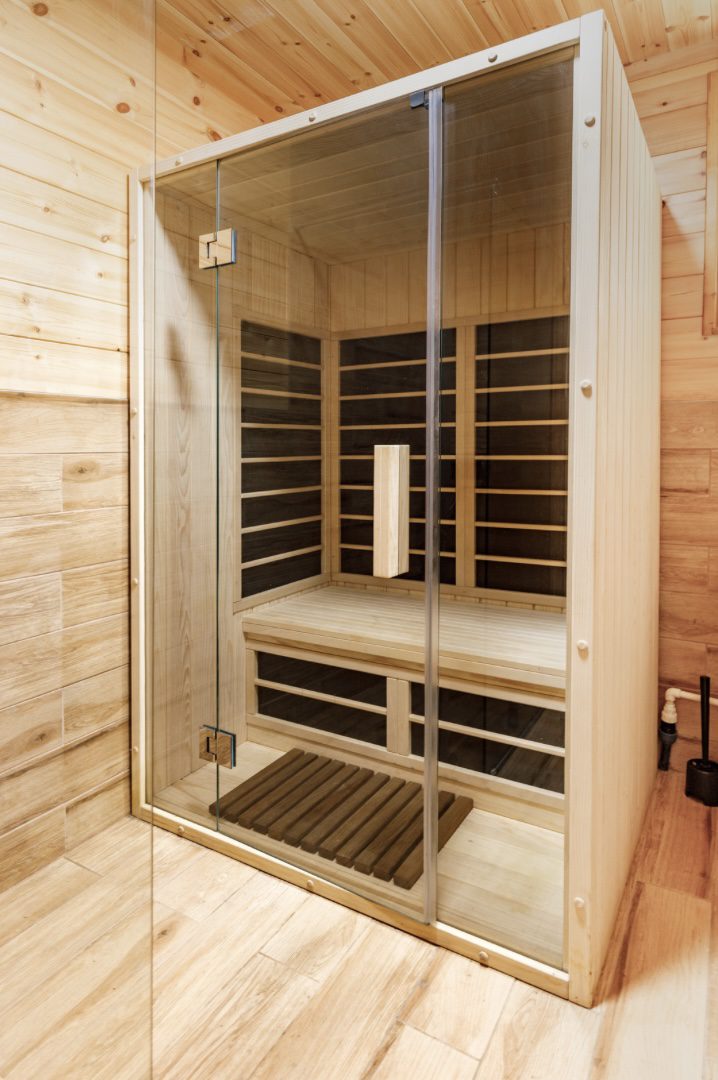Designing a Home Gym For Golf Fitness
April 14, 2025//Comments Off on Designing a Home Gym For Golf Fitness
A Gym For The Golf Enthusiast
Golf requires a unique combination of strength, flexibility, balance, and endurance to optimize swing mechanics and performance. A home gym designed for golf fitness training empowers players by providing a specialized space to prepare better, prevent injuries, and maintain consistency. Equipped with golf-specific tools like a functional trainer, balance boards, and recovery items, exercisers can enhance their swing mechanics and power, and can also reduce injury risk through corrective exercises that strengthen vulnerable areas like the back and hips (addressing golf’s repetitive stresses). By offering a convenient, personal, distraction-free environment, a home gym ensures year-round training, fostering discipline and progress tailored to individual goals, ultimately supporting long-term improvement and resilience in the sport.
This article outlines a few tips on how to create a golf-specific home gym, including recommended equipment, workout considerations, and a dedicated recovery section. If you are looking for pricing or have more questions, contact us here.
Why a Golf-Specific Home Gym?
Golf fitness training focuses on rotational power, core stability, flexibility, and unilateral strength to improve swing efficiency and durability. A home gym offers a personalized space to target these areas without the limitations (or crowds) of commercial facilities. Whether you’re an amateur or a seasoned golfer, a dedicated setup supports year-round progress.
Key Considerations for Designing Your Golf Specific Home Gym
Before investing in equipment, plan your space and goals:
1. Space RequirementsÂ
  Allocate 100–150 square feet ( a 10’ x 10’ area is a great starting point) for a versatile gym, accommodating strength, mobility, and swing practice. Ensure a ceiling height of 8–9 feet for exercises like medicine ball throws. Smaller spaces can work with compact equipment.
2. Flooring
  Use eco-friendly, shock-absorbing, easy-to-clean, options that enhance aesthetics and provide absorption and acoustics benefits.
3. Equipment Pre-Install Requirements Â
  Make sure to check the manufacturer’s owners guide (or consult with a professional) for recommended pre-install requirements such as electrical requirements, ceiling heights and spacing around the unit(s), etc..
4. Storage Solutions Â
  Wall-mounted racks or shelves keep weights, bands, and accessories organized, maximizing space and safety.
5. Budget
  Focus on versatile, high-quality equipment.
Essential Equipment for Golf Fitness Training
The following equipment supports golf-specific movements like rotation, stability, and power transfer. We recommend commercial-grade equipment for better quality, technology, and features.
1. Adjustable Dumbbells
  Adjustable dumbbells are space efficient and enable unilateral exercises like single-arm rows or lunges to address imbalances.
2. A Functional Trainer
  A functional trainer is a cable-based gym machine with adjustable pulleys and attachments, enabling versatile, sport-specific exercises that enhance strength, balance, and coordination. For golf, it supports dynamic movements like rotational presses, improving core stability and swing power, ideal for a home gym.
3. Medicine Balls
  Medicine balls support explosive movements like rotational slams to mimic swing power.
4. Kettlebells
  Kettlebells are versatile for swings, squats, and single-leg drills to improve hip mobility.
5. Balance Board or BOSU Ball
  Balance tools improve proprioception for swing control with exercises like squats or lunges.
  Bodyweight exercises like rows or rotational planks build upper body and core strength.
7. Cardio Option
  An indoor cycle or curved treadmill can help boost endurance for long rounds.
8. Vibration Plate
  Vibration training helps golfers stimulate more muscle activity, increase muscle strength, improve blood flow, and improve flexibility.
Recovery Training: A Critical Component
Recovery prevents injuries, reduces soreness, and maintains flexibility for optimal golf performance. Don’t forget to incorporate these items:
1. Cold/Hot Therapy
  Incorporating a sauna and cold plunge into your golf fitness recovery routine can significantly enhance muscle repair, reduce inflammation, and improve overall performance. A sauna promotes relaxation and increases blood flow, delivering oxygen and nutrients to fatigued muscles, which is crucial for recovering from golf’s repetitive rotational movements. Conversely, a cold plunge reduces muscle soreness and inflammation by constricting blood vessels and slowing metabolic processes, helping to mitigate strain from intense training sessions. Alternating between the two—known as contrast therapy—can optimize recovery by boosting circulation and reducing delayed onset muscle soreness, allowing golfers to maintain flexibility and return to the course feeling refreshed. Source
Here are some additional items and accessories to conisder:
2. Foam RollerÂ
 A foam roller aids recovery by relieving muscle tension, improving blood flow, and reducing soreness through self-massage.
 Massage gun therapy promotes recovery by reducing muscle tightness, enhancing circulation, and accelerating the breakdown of lactic acid buildup.
4. Stretching Equipment
 A stretch trainer enhances recovery by improving flexibility, reducing muscle stiffness, and promoting better circulation through more guided, controlled stretching.
Â
Conclusion
A golf fitness specific home gym is a game-changer for improving swing speed and power, endurance, and injury resilience. With equipment like dumbbells, resistance bands, and even cardio, you can target golf-specific skills effectively. A robust recovery routine—featuring foam rolling, stretching, and cold/hot therapy—ensures long-term performance. By planning thoughtfully, your home gym can elevate the golf game and overall fitness.
Disclaimer: Always consult a physician or fitness professional before beginning any exercise program, especially with pre-existing conditions.



